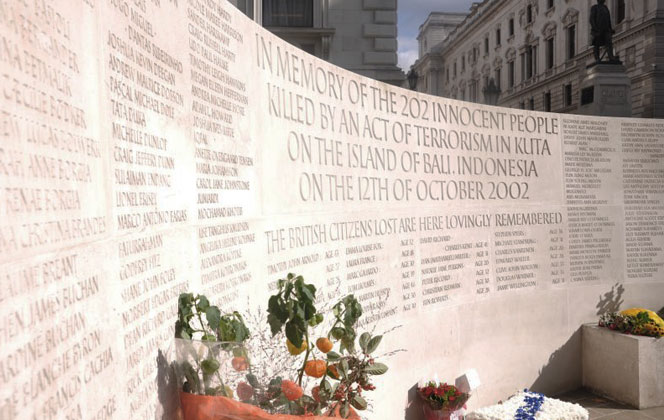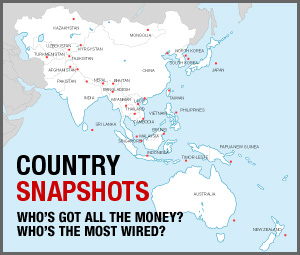APAC—Top 10 Stories of Decade
6. Bali BombingOctober 12, 2002
Patrons of Paddy’s Pub, a popular nightspot in the tourist haven of Kuta, on the island of Bali, likely felt a world away from terrorism as they partied into the night of October 12, 2002. That presumption was shattered just after 11 pm, when a suicide bomber detonated a device in his backpack. Many patrons raced outside, only to be met with a much more powerful explosion. The blasts killed 202 and injured many more. Three men were later sentenced to death and executed by firing squad. For countries such as Iraq, Afghanistan, and Pakistan, devastating suicide bombings would become a regular occurrence. But the Bali bombs not only introduced the world to a local terror group, Jemaah Islamiyah, they were a precursor to subsequent troubles in the region–home to more than 60 percent of the world’s 1.57 billion Muslims, the vast majority moderate–that ranged from China’s Xinjiang province to the beaches of Sydney. They were a reminder if one were needed that the roots of Islamic fundamentalism and Samuel Huntington’s ‘Clash of Civilizations’ are not just planted in the Middle East.











